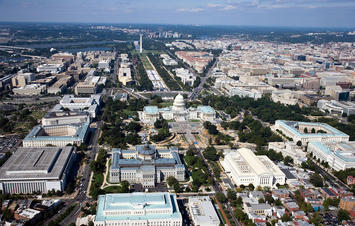
America's system of federalism provides plenty of opportunity for fighting and recriminations among various levels of government. But as the coronavirus response is showing, this system also has underappreciated strengths that we should take care not to overlook. As we reassess the world post-coronavirus, we should make sure we don't damage those strengths.
Federalism in an American context usually refers to the dual sovereignty of the federal and state governments. But in practice, governance is distributed beyond these two layers to a network of numerous entities including local governments, businesses and nonprofits that each perform critical roles in our society. They all need to play their roles, but, importantly, when there's a shortfall in one, others can often pick up the slack.
Start with the federal government. In 2013, Benjamin Barber wrote a book titled If Mayors Ruled the World, arguing that cities, not national governments, were doing a better job of addressing key challenges like climate change. Former Chicago Mayor Rahm Emanuel's recently published book is similarly titled: The Nation City: Why Mayors Are Running the World.
Yet in this crisis, everyone's eyes turned first to Washington and the federal government. That includes Emanuel, who wrote in The Wall Street Journal that when it comes to disasters "there's no substitute for federal leadership." If there's one thing this crisis should do, it's to explode the excessive mayoral triumphalism that's too often colored policy debates.
Read the rest of the piece at Governing.
Aaron M. Renn is an opinion-leading urban analyst, consultant, speaker, and writer on a mission to help America’s cities and people thrive and find real success in the 21st century. He also regularly contributes to and is cited by national and global media outlets, and his work has appeared in the The Guardian (UK), The New York Times, and The Washington Post, along with many others. Renn was a Senior Fellow at the Manhattan Institute from 2015-2019 and is a Contributing Editor at its quarterly magazine City Journal.
Photo credit: Carol Highsmith/ Library of Congress via Wikimedia, in Public Domain.












